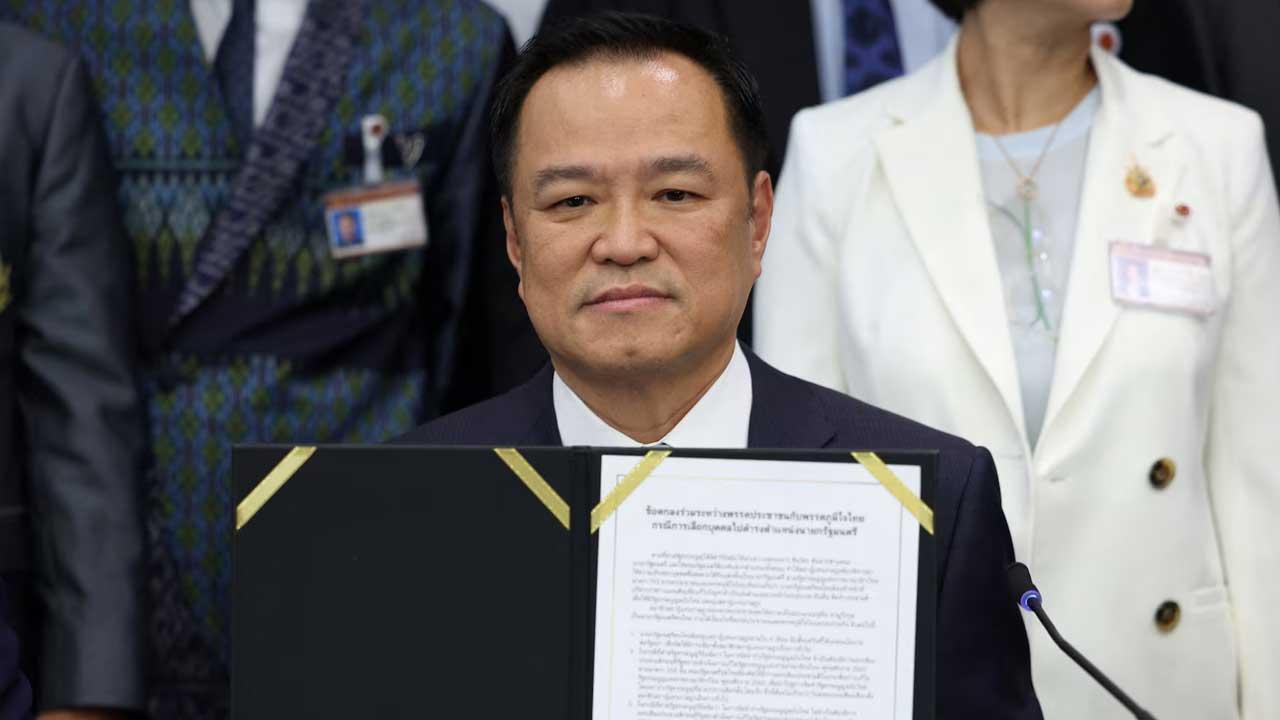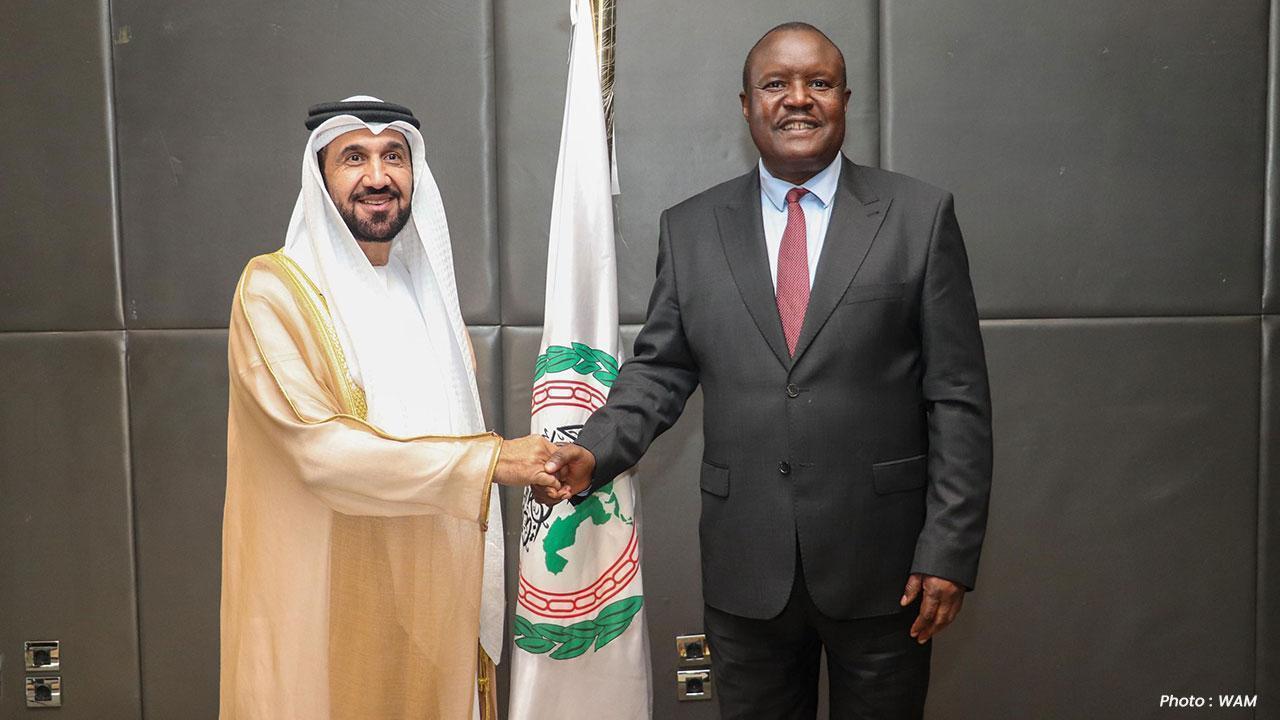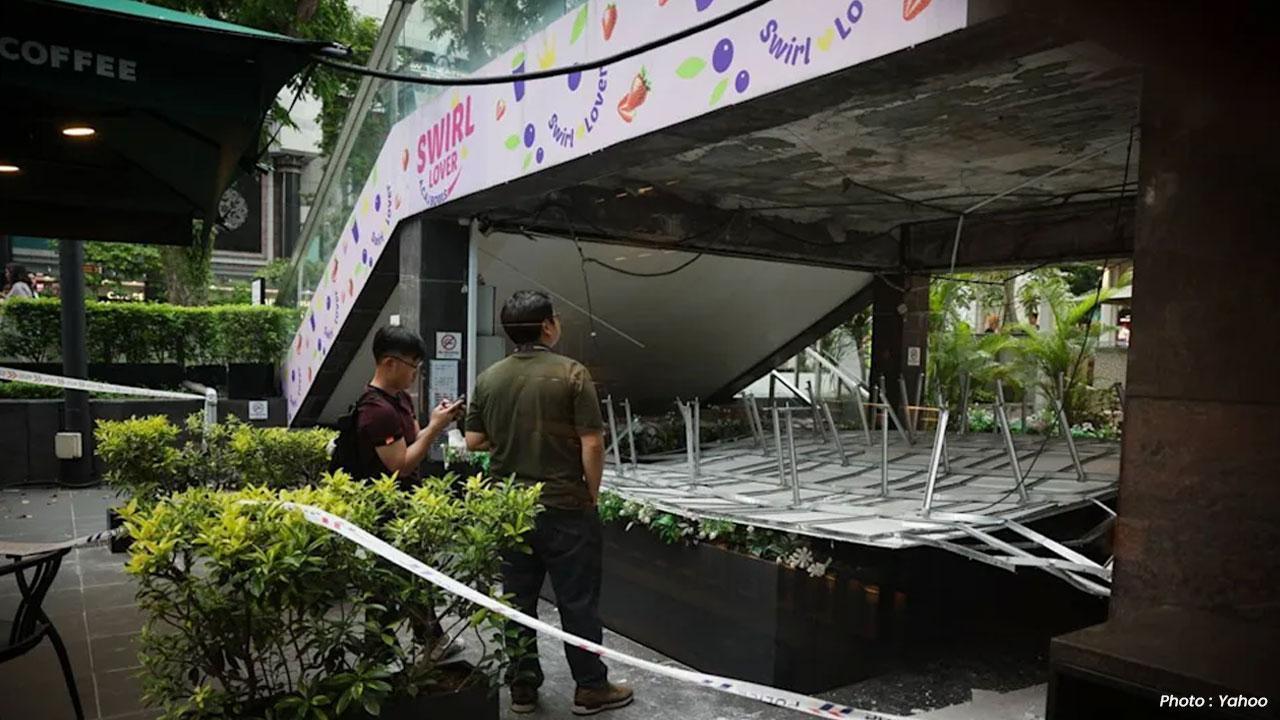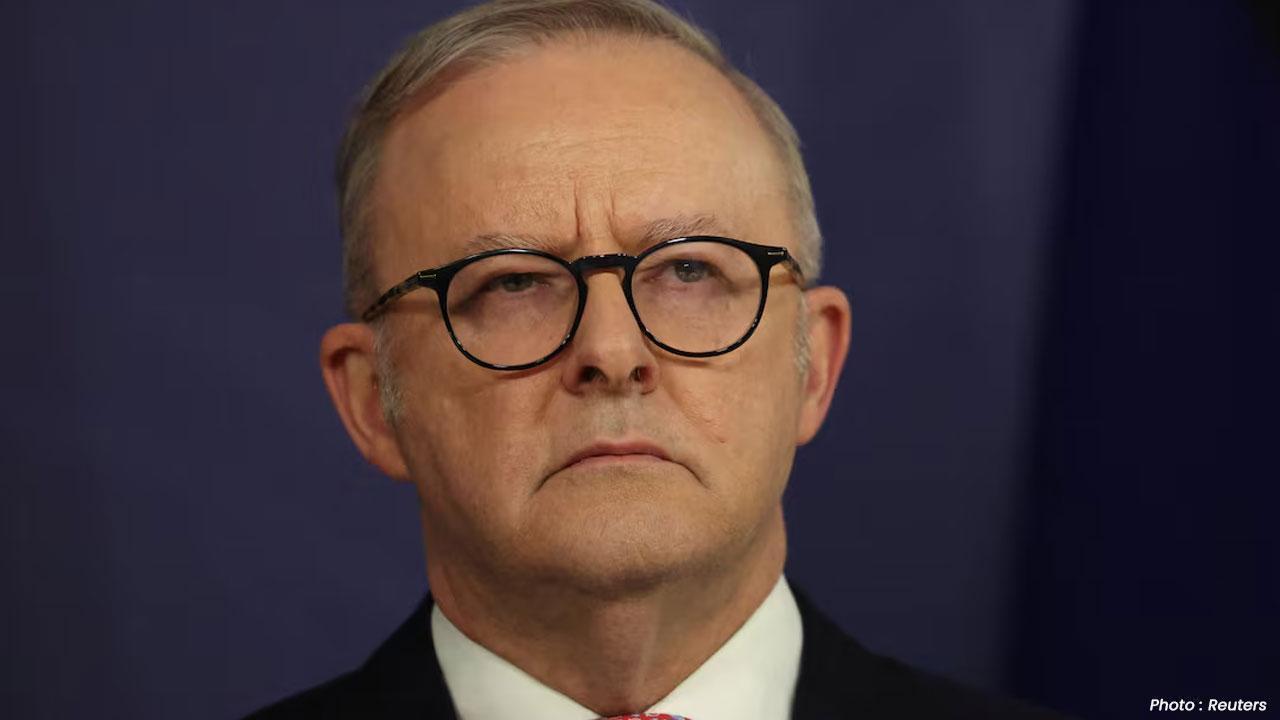
Join 10k+ people to get notified about new posts, news and tips.
Do not worry we don't spam!

Post by : Raman
Photo : Reuters
Bangkok - Thailand’s political scene has entered a tense and dramatic phase after the sudden dismissal of Prime Minister Paetongtarn Shinawatra. On Wednesday, Anutin Charnvirakul, leader of the Bhumjaithai Party, declared that he now has enough votes in parliament to take over as Thailand’s next prime minister. This announcement comes after days of intense negotiations and political maneuvering following the court’s decision to remove Paetongtarn from office due to an ethics violation.
A Political Shake-Up
The removal of Paetongtarn, who is part of the influential Shinawatra family, has triggered one of the most turbulent political moments in Thailand in recent years. Paetongtarn’s dismissal marks the sixth time a prime minister connected to the Shinawatra family has been forced out by judicial or military intervention. The abrupt change has left the ruling Pheu Thai Party scrambling to maintain control, while smaller parties have sought to seize the opportunity to claim power.
For years, Pheu Thai, backed by billionaire Thaksin Shinawatra, has dominated Thailand’s political landscape, winning five of the last six elections. However, the party has struggled to stabilize its coalition, which has been losing support in recent months. Meanwhile, the Bhumjaithai Party, a smaller political group that left the coalition in June, has been actively negotiating alliances and deals to secure the premiership.
People’s Party Support Breaks Deadlock
The turning point came on Wednesday when the progressive opposition group, the People’s Party, announced its support for Anutin Charnvirakul. The People’s Party holds nearly one-third of the seats in the lower house of parliament and plays a decisive role in Thailand’s political balance. In exchange for their support, Anutin promised to dissolve parliament within four months and allow new elections, ensuring that his government would only be temporary.
Anutin told reporters, “We know that the formation of this government will proceed with the cooperation and sacrifices of the People’s Party. This is a solution for Thailand during a period of crises.”
The People’s Party, despite its support, will not formally join Anutin’s government. Instead, it guarantees the backing of its 143 lawmakers, which, combined with the seats held by Bhumjaithai and other allied parties, gives Anutin a majority in the lower house to pass key votes. A parliamentary vote on the new prime minister could take place as early as Friday.
A Government of Many Parties
Anutin, 58, a former health minister and Thailand’s COVID-19 response chief, is known for his progressive stance on cannabis legalization. He plans to lead a minority government that will govern for only four months, until a new election can be held. His coalition includes seven parties and groups, totaling 146 seats in parliament.
The decision of the People’s Party to back Anutin was driven by a desire to prevent interference from powerful interests outside the political process. Natthaphong Ruengpanyawut, leader of the People’s Party, stated, “Our decision is about finding a solution for the country based on parliamentary democratic principles, preventing outside forces from interfering, and moving toward a new constitution while returning power to the people as soon as possible.”
Pheu Thai Pushes for a Snap Election
In response, the Pheu Thai Party moved quickly to counter Anutin’s plan. They petitioned King Maha Vajiralongkorn to approve the dissolution of parliament, arguing that a snap election was necessary to resolve the political deadlock and stabilize the economy. Phumtham Wechayachai, acting prime minister for Pheu Thai, said, “The situation right now shows how the democratic system has been twisted. We decided to hand power back to the people to decide. But this is a royal prerogative.”
There is debate among legal experts in Thailand about whether a caretaker government can request parliament’s dissolution. This adds another layer of complexity to the ongoing political struggle.
A History of Political Conflict
Thailand’s recent political turmoil is not new. For decades, the country has been marked by deep rivalries between elite factions, military influence, and judicial interventions. The Shinawatra family has long been at the center of these conflicts, with multiple family members serving as prime ministers only to be removed from office under various circumstances. Paetongtarn’s removal is the latest chapter in this ongoing saga.
Anutin’s rise to potential prime ministership marks a shift in the balance of power, showing how smaller parties can leverage political alliances to challenge dominant groups. His promise to call elections within four months is designed to reassure both the People’s Party and the public that this government will be temporary, allowing the democratic process to continue.
Public and Political Implications
The political situation in Thailand remains fragile. The temporary government under Anutin will need to navigate a complex web of alliances, manage public expectations, and ensure stability during the transitional period. Meanwhile, Pheu Thai continues to mobilize support for a snap election, emphasizing that the people should have a say in determining the country’s leadership.
The role of the People’s Party is central in this political chess game. By supporting Anutin without joining the government, they are asserting their influence while maintaining independence. This approach reflects the party’s long-standing strategy of leveraging parliamentary strength to shape Thailand’s political landscape, while also promoting reform and preventing domination by powerful political families.
Thailand’s parliament could vote on the new prime minister as early as Friday. In the meantime, political leaders and parties are preparing for either the temporary government under Anutin or the potential for early elections if the King approves Pheu Thai’s request.
This moment underscores the fragility and complexity of Thailand’s democratic system, where courts, the monarchy, and political parties play intertwined roles in shaping governance. The next few days will be critical in determining whether Thailand moves forward under a temporary coalition or returns to the polls for a new mandate from the people.
Thailand is at a pivotal moment in its political history. The removal of Paetongtarn Shinawatra has created both uncertainty and opportunity. Anutin Charnvirakul, with the backing of the People’s Party, is poised to lead a temporary government, promising elections within four months. At the same time, Pheu Thai seeks a snap election to maintain its influence and restore political stability.
As the country waits for the parliamentary vote and the King’s decisions, the actions of these political players will shape Thailand’s leadership, governance, and democratic future for years to come.
thailand politics, anutin charnvirakul, bhumjaithai party, peoples party, thai prime minister










India Dominates UAE by 9 Wickets in Asia Cup 2025 Opener with Brilliant Bowling
India dominates UAE in Asia Cup 2025 opener, winning by 9 wickets with Kuldeep Yadav shining and a q

Karishma's Kids Get 1,900 Crore: Priya Kapoor Defends Sunjay Kapur Estate
Priya Kapur claims Karisma Kapoor’s children already received Rs 1,900 crore as court battle over Su

Akshay Kumar 58th Birthday Heartfelt Thanks to Fans and Colleagues
Bollywood star Akshay Kumar celebrates his 58th birthday with gratitude, thanking fans and colleague

Hina Khan Backs Ashnoor Kaur After Farhana Bhatt Bigg Boss 19 Remarks
Hina Khan supports Ashnoor Kaur after Farrhana Bhatt’s comment on Bigg Boss 19, sparking social medi

India Beats Korea 4-1 to Win Asia Cup 2025, Secures Spot in 2026 World Cup
India dominates Korea 4-1 in Asia Cup 2025 final, wins the title and qualifies for the 2026 Men’s Ho

Daniel Ricciardo Retires from Racing, Joins Ford as Global Motorsports Ambassador
Daniel Ricciardo ends his racing career and becomes Ford’s Global Racing Ambassador, staying connect